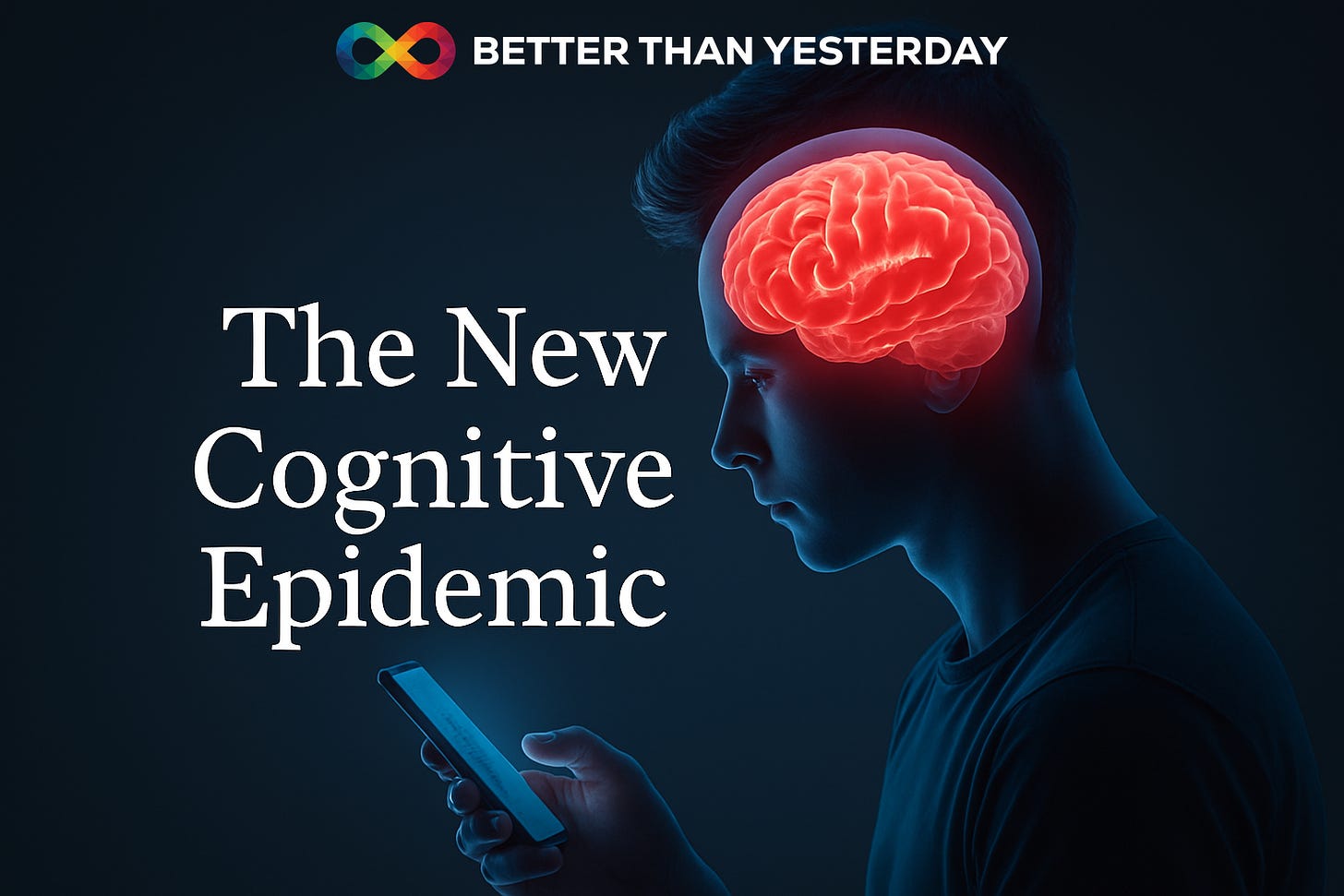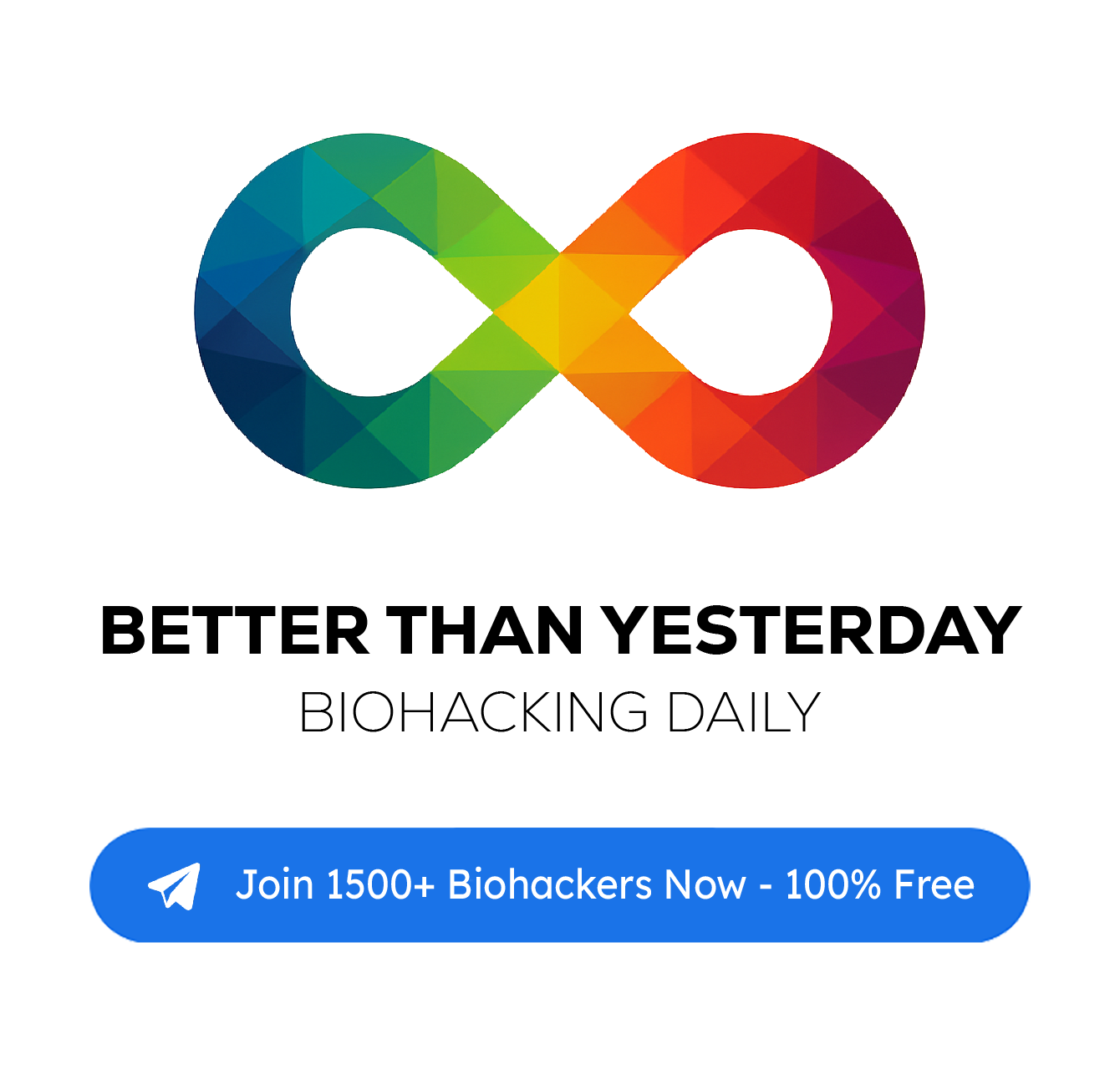The New Cognitive Epidemic: How Short Videos Hijack Your Brain Faster Than Alcohol
Are you, or your kids, victims of the new cognitive epidemic?
Two recent peer-reviewed studies show what many of us have suspected: TikTok, Instagram Reels, YouTube Shorts, and even Facebook feeds aren’t just stealing our time: they’re reshaping how our brains work.
A 2022 study in Frontiers in Psychology found that short-form videos can impair focus more rapidly than alcohol. These platforms are engineered to trigger dopamine spikes: bursts of the brain’s “reward” neurotransmitter every few seconds.
The constant stimulation trains your brain to crave novelty and reject anything slower or more effortful.
Dopamine Overload: The Brain’s Hijack
Dopamine is essential for motivation, pleasure, and learning. But when artificially overstimulated by endless rapid content, the brain changes:
📉 Attention span shrinks and patience fades
🌀 Quick hits feel normal, making real life seem slow and boring
🧠 Motivation drops because nothing matches the rush of the next swipe
In other words, your brain learns to expect constant novelty and starts rejecting the slow, deep tasks that build real skills and knowledge.
What EEG Scans Reveal
In 2024, researchers publishing in Frontiers in Human Neuroscience used EEG brainwave analysis to measure short-video effects on attention.
Results after just 30 minutes of mobile short-video use:
Reduced alertness : slower to react to incoming information
Weakened executive control : harder to stay focused when distracted
Lower network efficiency : attention systems literally worked less effectively
Repeated daily, these changes can become the brain’s default mode.
Why Kids Are at Higher Risk
The prefrontal cortex, responsible for self-control, planning, and sustained attention, isn’t fully developed until the mid-20s. This makes children and teens especially vulnerable:
🌱 Self-control erodes faster
📚 Learning capacity takes a hit
🧩 Complex tasks feel harder than they really are
Over time, schoolwork feels exhausting, reading becomes a chore, and even conversations can seem dull compared to the dopamine rush of short videos.
The Biohacker’s 3-Day Dopamine Reset
The brain is plastic: it can adapt back toward focus. Here’s a science-backed reset:
⏰ Morning: No phone for the first 60 minutes: reset natural dopamine cycles
🌞 Midday: 20 min of outdoor movement: sunlight regulates circadian rhythm and boosts serotonin
📚 Evening: Replace short-form feeds with one long-form read or podcast: retrain focus
🌙 Sleep: No screens for 1 hour before bed: protect melatonin and deep sleep quality
Protecting the Next Generation
If you have kids, start these boundaries now:
📵 Keep devices out of bedrooms at night
⏱ Use app limits and timers to control usage
👀 Model healthy tech habits yourself
This isn’t about banning technology, it’s about protecting the most important cognitive asset you have: your ability to focus.
Your brain is your operating system. Don’t let an endless scroll rewrite its code.
Sources
Ouyang, J., et al. (2022). The addiction behavior of short-form video app TikTok: The information quality and system quality perspective. Frontiers in Psychology, 13:932805. https://doi.org/10.3389/fpsyg.2022.932805
Wang, Z., et al. (2024). Mobile phone short video use negatively impacts attention functions: an EEG study. Frontiers in Human Neuroscience, 18:1383913. https://doi.org/10.3389/fnhum.2024.1383913



